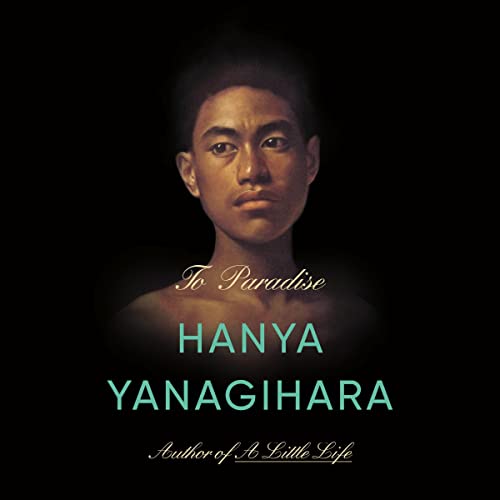Hanya Yanagihara – The Paradise Audiobook
Hanya Yanagihara – The Paradise Audiobook

Book 1
BOOK 2:
Book 3:
text
“To Paradise” by Hanya Yanagihara is a richly layered and masterfully constructed narrative that delves deep into the heart of American identity, love, societal norms, and the elusive concept of utopia. Through its sprawling narrative, set across three different centuries in an alternate version of America, Yanagihara invites readers into a meticulously crafted world that reflects on both the timeless quest for a better life and the complexities of human connection.
Expanded Exploration of the Book’s Themes and Settings
Book One: 1893, New York presents an America where the map of freedom is drawn differently, including the recognition of same-sex marriages in certain states. This section intricately explores the societal pressures of the time, juxtaposing the external appearance of liberty with the internal struggle for true happiness. The protagonist’s journey from a life of restrictive luxury to one of uncertain freedom mirrors the broader search for a personal paradise amidst the rigid expectations of society. This narrative strand is a poignant reflection on the cost of bucking societal norms for the sake of authentic love and personal truth.
Book Two: 1993, New York transitions to a period marked by the AIDS crisis, a time of profound fear and loss for the LGBTQ+ community. Through the eyes of characters like Charlie, Yanagihara captures the intense emotional landscape of a city and a community under siege, not just by a deadly virus, but by societal prejudice and neglect. This narrative thread is a harrowing reminder of the struggle for dignity and equality, set against the backdrop of one of the most difficult periods in recent history for the LGBTQ+ community, highlighting the quest for paradise amidst pain and loss.
Book Three: 2093, New York thrusts readers into a dystopian future, one where the pursuit of safety and order has led to a totalitarian regime. This vision of a fractured and authoritarian America, grappling with the dual crises of climate change and epidemic disease, serves as a stark cautionary tale about the potential costs of forsaking freedom for security. Through the journey of a young woman navigating this oppressive world, Yanagihara explores the enduring human capacity for hope, connection, and resilience even in the darkest times, underscoring the novel’s thematic focus on the search for personal and collective paradises in a world that seems hell-bent on preventing them.
Literary Significance and Reflective Questions
“To Paradise” engages with deeply significant questions about America’s past, present, and future. Yanagihara’s alternate Americas serve not as mere speculative exercises but as mirrors reflecting our deepest anxieties, hopes, and the perennial human quest for a better world. The book’s expansive scope and its intimate focus on its characters’ struggles and joys invite readers to reflect on the paths we choose, the sacrifices we make for love and freedom, and the worlds we build, both for ourselves and for those who come after us.
Yanagihara’s work is a testament to the power of fiction to explore fundamental human themes and to illuminate the complexities of the human heart. “To Paradise” stands as a profound meditation on the nature of happiness, the quest for belonging, and the varied forms that the pursuit of paradise may take across different epochs and societal configurations. It challenges readers to consider how much we are willing to risk in our own search for a better life and how the meanings of freedom and paradise shift across time and space.
In crafting this ambitious and thought-provoking novel, Hanya Yanagihara has enriched the literary landscape with a work that resonates deeply with contemporary concerns while also offering timeless insights into the human condition.